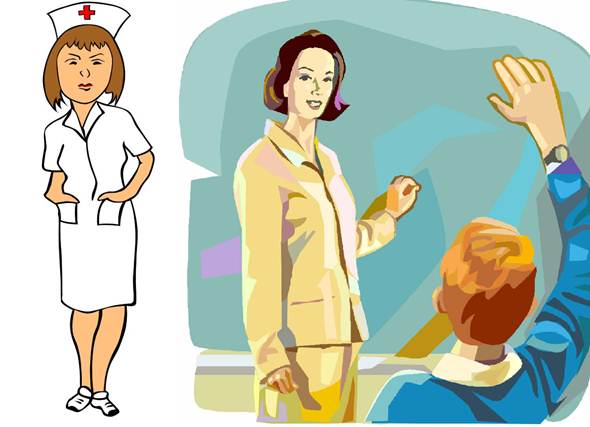Every day in the UK, 75 people are diagnosed
with epilepsy, yet few of us know the true implications of living with the
condition. Sara Brannan, 33, reveals the impact that suffering from extreme
epilepsy has had on her life
What’s the worst thing that’s happened to
me because of my epilepsy? Probably the time I had a fit in my bathroom and
broke seven bones in one go. In fact, over the years, I’ve fractured my skull
twice, my nose three times, seven ribs, my tail bone, my arm, my fingers and my
breastbone (and still suffer daily pain because of those injuries). Or perhaps
you’d think that it was when I was mugged while having a fit.
I was walking across a pedestrian crossing
when it happened. A man behind me told everyone I was his girlfriend and was
overdosing on heroin - then ran off with my bag. A lot of people believed him
and left me in the road, but at least there were a few who thought a heroin
addict might not be laden down with shopping and decided to help. That was more
than ten years ago, and it was the last time I left the house on my own.

Trapped
By Epilepsy: “I can’t even leave the house on my own”
It wasn’t always like this. I was diagnosed
aged eight, but no one knows what triggered it, and there are no other cases in
my family. Apparently, epilepsy can be caused by birth difficulties, a blow to
the head, a stroke, brain tumour or brain infection, such as meningitis. The
seizures are caused by a burst of excess electrical activity in the brain,
which leads to a temporary blip in the message-passing between brain cells.
This results in the messages being halted or mixed up. What you experience
during a seizure depends on where in your brain the activity begins and how it
spreads, so there are several types. I started having what’s known as ‘petit
mal’ seizures, where I’d go blank and stop talking mid-sentence. I then
progressed to ‘drop’ attacks, where my muscles stopped working and I’d fall,
and finally ‘tonic clonics’. These were probably the worst, as I’d convulse,
vomit and lose bladder and bowel control. I was put on Lorazepam, an
anti-convulsant and anti-anxiety medication, which calmed things down and meant
the epilepsy didn’t affect my life so much.
My parents certainly didn’t wrap me in
cotton wool, and while I was supposed to use common sense - not climb on
things, not go swimming alone - I was a child and, of course, I didn’t always.
I broke my nose after I had a fit while I was balancing on a wall. I also had a
seizure in a swimming pool and had to be rescued by the staff. I think my mum
and dad did worry on several occasions, but they let me grow up as
independently as possible, which I’m incredibly thankful for.

When
I was growing up, I dreamed of working with children, as a paediatric nurse or
a teacher, but it was eventually made clear to me that that wasn’t going to
happen
In my teens, things calmed down further - I
was only having a tonic clonic about once a month, and the vomiting and loss of
bladder and bowel control stopped. I had a very strong group of friends with
whom I’d grown up; they all knew about my epilepsy and what to do if I had a
fit, so I had a virtually normal life. In my early twenties, I left home and
moved in with my boyfriend (now husband) Paul, now 34 - although I was trying
to be independent, living alone wasn’t an option. We’d known each other since
we were 13, and got together when we were 19, so he knew all about my
condition.
When I first had a fit in front of Paul, I
was mortified, but he carried on as normal. Even now, he’s very laid-back and
practical, performing first aid and calming me down. Of course, he worries
about me - he regularly phones me from work to check I’m okay - and if I feel
like a fit is imminent, I’ll call him and he talks me through it, reminding me
to move the furniture, lie on the sofa and put a quilt over myself, so that if
I do fall, the damage is minimal. The only time he becomes emotional is when
people don’t understand the condition, or if I tell him someone has ignored me
after a fit. He gets angry sometimes - not that people don’t care, but that
they can be so ignorant about my condition, assuming I’m drunk when I’m in need
of help
When I was growing up, I dreamed of working
with children, as a paediatric nurse or a teacher, but it was eventually made
clear to me that that wasn’t going to happen. Stress and over-excitement
trigger my attacks, so I had to pick low-pressure admin jobs. I loved working,
but sadly, my employers didn’t always feel the same way. I’ve been sacked from
every job I’ve had during my three-month probation. Sometimes it’s to do with
insurance - I have a lot of accidents at work - but on one occasion, I had a
seizure and one of my colleagues started to cry. I was immediately taken aside
and told I was scaring the other staff and was therefore no longer needed. I
hadn’t even finished coming round yet, and they were getting rid of me. Now I
don’t work at all - it’s one of the things I hate most.
Epilepsy: the facts
- Epilepsy cannot be cured with treatment -
but, in most cases, the right drugs can control it. There are more than 20
different medications currently available.
- Not everyone with epilepsy has it for
life - it can disappear.
- Up to five per cent of sufferers have
photosensitive epilepsy. Sara’s fits can be triggered by flashing lights
on television - or even being driven past a fence on a sunny day.
It’s 50-50 how people react when K you do
have a fit - I’ve had seizures in the street and come round to find passers-by
literally stepping over me to get away, but other people are brilliant. I’m not
expecting everyone to know what to do in terms of first aid, but if you do see
someone having a seizure, stay with them.
I suppose one benefit of my condition is
that it’s made me an excellent judge of character. I know who my friends are,
as people who can’t cope certainly don’t hang around. My best friend Susan has
been there since childhood - she even picked me as her bridesmaid when she
didn’t know if I’d make it through the ceremony. My own wedding day was the
same. I was terrified that I would fit during the service, but I kept it very
low-key and scheduled it in the afternoon, when I know I’m less likely to fit.
I took some prevention medicine and made it down the aisle just fine - I didn’t
drink a drop of alcohol all day, though, just in case it set me off.

In
a way I’m lucky - I have great support from my family and friends, and have
been helped by the Scottish Epilepsy Centre.
Eleven years ago, I became pregnant and had
my daughter, Mary-Jo. After her birth, everything changed. Within six months, I
went from having serious, but manageable, epilepsy, to an out-of-control
condition. Though hormones do impact on epilepsy, it’s unusual for the
condition to change so severely after pregnancy. In fact, pregnancy can reduce
incidents as much as provoke them. I don’t know how many fits I have a day, as
I’m not aware of all of them. When I was monitored at hospital recently, they
said I had nine seizures in the first two days alone. They also told me my
seizures are very violent - when I asked them to describe it, one staff member
said, “Imagine The ExorcistThat’s why I do so much damage to myself; there’s
often no warning that I’m going to have a fit, and if I’m somewhere like the
bathroom, I can bang into every hard object that’s around me. Because of this,
we live in a house without stairs.
I can’t remember fitting when I was alone
with Mary-Jo as a baby. But I had to plan meticulously; I did nappy changing
and feeding on the floor, so that even if I fell, she wouldn’t. When she was a
toddler, I’d keep her strapped in the buggy when we were out as a family, so
that if I did fit, she couldn’t run off.
Sometimes I only know I’ve had a fit
because I look at the clock and realise an hour has passed. Other times it’s
more obvious, because I find myself on the floor. Then it’s a case of assessing
whether I think I need to go to hospital or just sleep it off. I also fit at
night, and only know I’ve done that when I wake up and find I’ve bitten through
my tongue. The doctors are mystified - up to 70 per cent of epilepsy sufferers
can control their seizures through medication**; I’m one of the other 30 per
cent. I’ve been on every drug on the market -and even a few that have been
taken off it. I take daily prevention medication and must take it within five
to ten minutes of waking or I’ll have a fit. I’m also on a sedative that leaves
me wiped out all day. My only real hope of controlling things further is if a
new drug comes out that works for me.
In a way I’m lucky - I have great support
from my family and friends, and have been helped by the Scottish Epilepsy
Centre. This means I have a relatively normal social life (some sufferers as
severe as me are housebound). It also means that Mary-Jo, who’s now ten, can
grow up normally, although it’s my dream to take her out one day, just mother
and daughter. Obviously, I’ve had a fit in front of her and, even though she
knows what’s happening, I’ve come round to find her crying because she’s scared.
She’s turning into a real campaigner, though - she does talks at school about
epilepsy, and I once found her and her friends on the street selling cakes to
raise money for research into the condition. She wants a brother or sister, but
there’s no way I can get pregnant on the drugs I’m now taking - and I have so
many falls that I probably couldn’t carry another pregnancy to term anyway.
One in every 100 people in the UK is
affected by epilepsy, so the chances are you know someone who has it. Yes, it
can be lonely and confusing sometimes, but it’s part of who I am and I’ve
managed to achieve a rich and happy life despite it.
How To Help An Epileptic
A recent study* revealed that 94 per cent
of epilepsy sufferers feel other people have no idea what they go through
daily. Says Sara (below), “There are things you can do to help someone who is
having a seizure. First, check there’s nothing around them on which they can
injure themselves - if there is, move it. Cushion their head with something
soft, but don't hold them down or put anything in their mouth. If a convulsive
seizure doesn’t stop after five minutes, call an ambulance. When it does stop,
put them in the recovery position (on one side, with their top leg and arm bent
at 90 degrees) and check they are breathing okay. If they aren’t, call an
ambulance. Also call an ambulance if they are injured or if they begin to have
another fit before recovering fully from the first.”